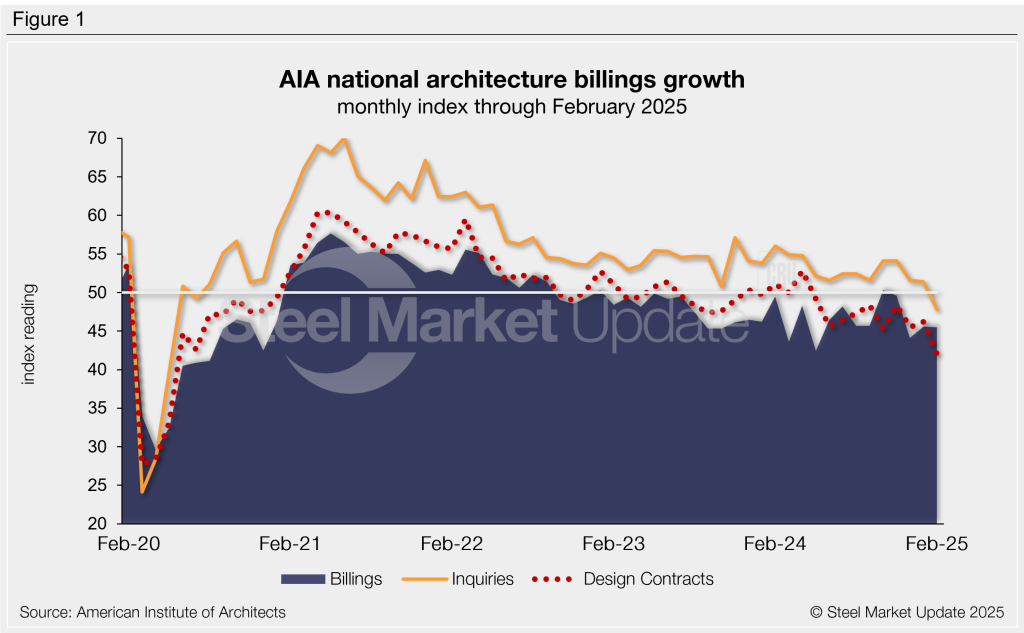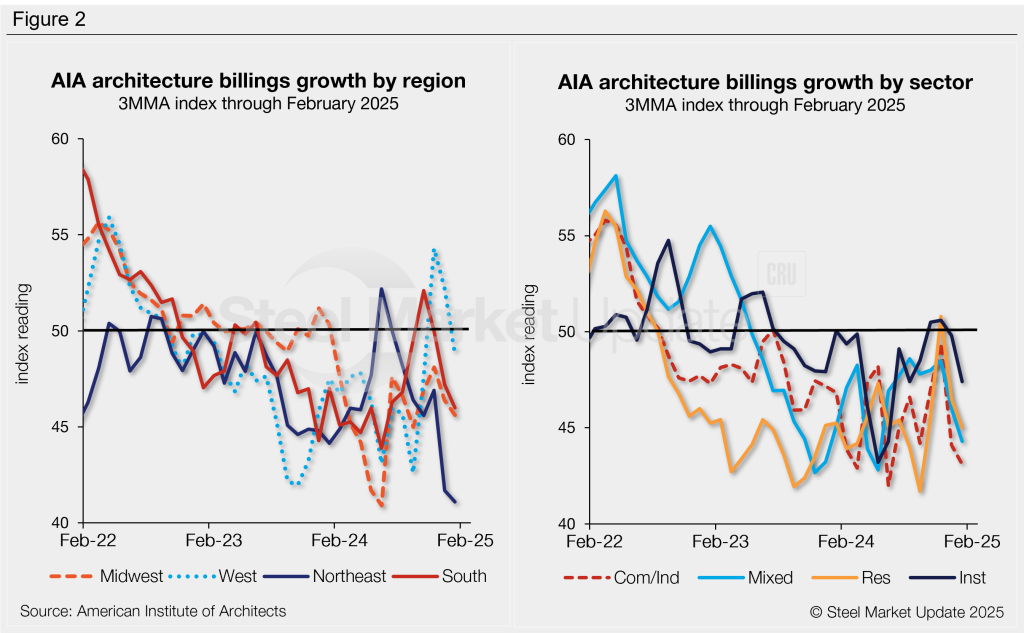Market Data
March 19, 2025
Architecture billings continued to slide in February
Written by Stephanie Ritenbaugh
Architecture firms said billings continued to weaken in February, according to the latest Architecture Billings Index (ABI) released by the American Institute of Architects (AIA) and Deltek.
The February ABI dropped slightly to 45.5, off from 45.6 in January, indicating that a majority of firms are still experiencing declining firm billings.
It’s the first time since the peak of the pandemic in 2020 that February saw a drop in inquiries for new projects. The month is typically a steady indicator of potential opportunities, even during economic slowdowns, according to AIA.
The ABI is a leading indicator for near-term nonresidential construction activity and projects business conditions ~9-12 months down the road (the typical lead time between architecture billings and construction spending). An index score above 50 indicates an increase in architecture billings, while a reading below 50 indicates a decrease.
“Conditions in the broader economy were generally positive in February, with the Consumer Price Index (CPI) increasing by only a modest amount, long-term interest rates easing from January levels, and healthy job growth,” said AIA Chief Economist, Kermit Baker.
“However, uncertainty surrounding the impact of recently announced tariffs may lead to a rise in building material prices in the coming months while immigration policy may put even more pressure on an already undersupplied construction labor market.”
Meanwhile, new signed design contracts have decreased for the 12th consecutive month, reflecting hesitation to commit amid ongoing economic uncertainty, AIA found.


An interactive history of the December Architecture Billings Index is available here on our website.







